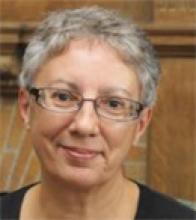Hazel Carby
Hazel V. Carby HonFLSW, FRSA, is the Charles C. and Dorothea S. Dilley Professor Emeritus of African American Studies and Professor Emeritus of American Studies Yale University and a Fellow of the Royal Society for the Arts. She is currently a Visiting Research Professor & Humanities Institute Faculty at Dartmouth College.
She is the author of Imperial Intimacies, A Tale of Two Islands (Verso, 2019) selected as one of the “Books of the Year for 2019,” by the Times Literary Supplement. Winner of the British Academy’s Nayef Al-Rodhan Prize for Global Cultural Understanding, 2020.
Finalist John Hope Franklin Publication Prize, ASA, 2020.
Highly Commended PEN Hessell-Tiltman Prize, 2020.
Author of Cultures in Babylon: Black Britain and African America (1999); Race Men (1998); Reconstructing Womanhood: The Emergence of the Afro-American Woman Novelist (1987); Hazel Carby is also a co-author of The Empire Strikes Back: Race and Racism in 70s Britain (1982).
Recent Honors:
DeVane Medal, Yale Phi Beta Kappa, 2021
Elected Honorary Fellow Learned Society of Wales, 2021
British Academy Nayef Al-Rodhan Prize for Global Cultural Understanding, 2020, for Imperial Intimacies
Finalist John Hope Franklin Publication Prize, ASA, 2020.
Highly Commended PEN Hessell -Tiltman Prize, 2020
Honorary degree of Doctor of Letters awarded from Wesleyan University, 2019.
Stuart Hall Outstanding Mentor Award, Caribbean Philosophical Association, 2019.
Fellow of the Royal Society for the Arts.
Jay B. Hubbell Medal for lifetime achievement in American Literature, MLA ,2016
Recent Articles:
“Imperial Intimacies – further thoughts,” Small Axe, 64, March 2021: 198-203.
“Between Black and White,” London Review of Books, 43, 2, January 2021
“Black Futurities: Shapeshifting Beyond the Limits of the Human” Invisible Culture, 31, November 2020 https://ivc.lib.rochester.edu/black-futurities/
“The National Archives,” Invisible Culture, 31, November 2020 https://ivc.lib.rochester.edu/the-national-archives/
“Peine forte et dure: Punishment by Pressing,” London Review of Books 30 July 2020: 10.
“Safe? At Home? Feminist Review, 06 July 2020
https://femrev.wordpress.com/2020/07/06/safe-at-home/
“A war half won,” The Guardian (Weekend) 16 November 2019, pp. 62-63
ABOUT IMPERIAL INTIMACIES
A haunting and evocative history of British empire, told through one woman’s search through her family’s story
“Where are you from?” was the question hounding Hazel Carby as a girl in post–World War II London. One of the so-called brown babies of the Windrush generation, born to a Jamaican father and Welsh mother, Carby’s place in her home, her neighbourhood, and her country of birth was always in doubt.
Emerging from this setting, Carby untangles the threads connecting members of her family to each other in a web woven by the British Empire across the Atlantic. We meet Carby’s working-class grandmother Beatrice, a seamstress challenged by poverty and disease. In England, she was thrilled by the cosmopolitan fantasies of empire, by cities built with slave-trade profits, and by street peddlers selling fashionable Jamaican delicacies. In Jamaica, we follow the lives of both the “white Carbys” and the “black Carbys,” as Mary Ivey, a free woman of colour, whose children are fathered by Lilly Carby, a British soldier who arrived in Jamaica in 1789 to be absorbed into the plantation aristocracy. And we discover the hidden stories of Bridget and Nancy, two women owned by Lilly who survived the Middle Passage from Africa to the Caribbean.
Moving between the Jamaican plantations, the hills of Devon, the port cities of Bristol, Cardiff, and Kingston, and the working-class estates of South London, Carby’s family story is at once an intimate personal history and a sweeping summation of the violent entanglement of two islands. In charting British empire’s interweaving of capital and bodies, public language and private feeling, Carby will find herself reckoning with what she can tell, what she can remember, and what she can bear to know.
SEE LESS
